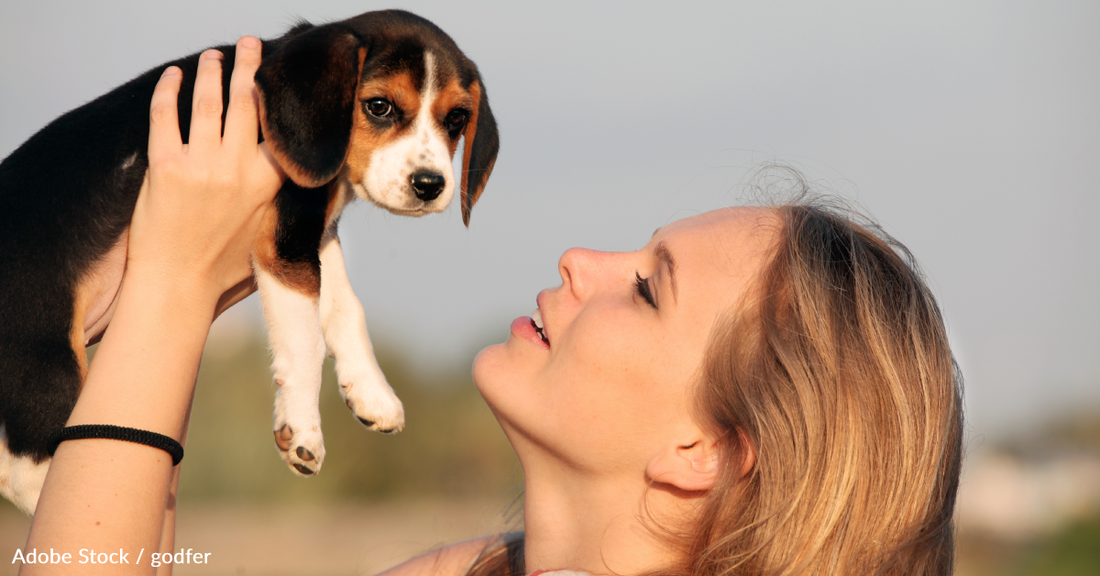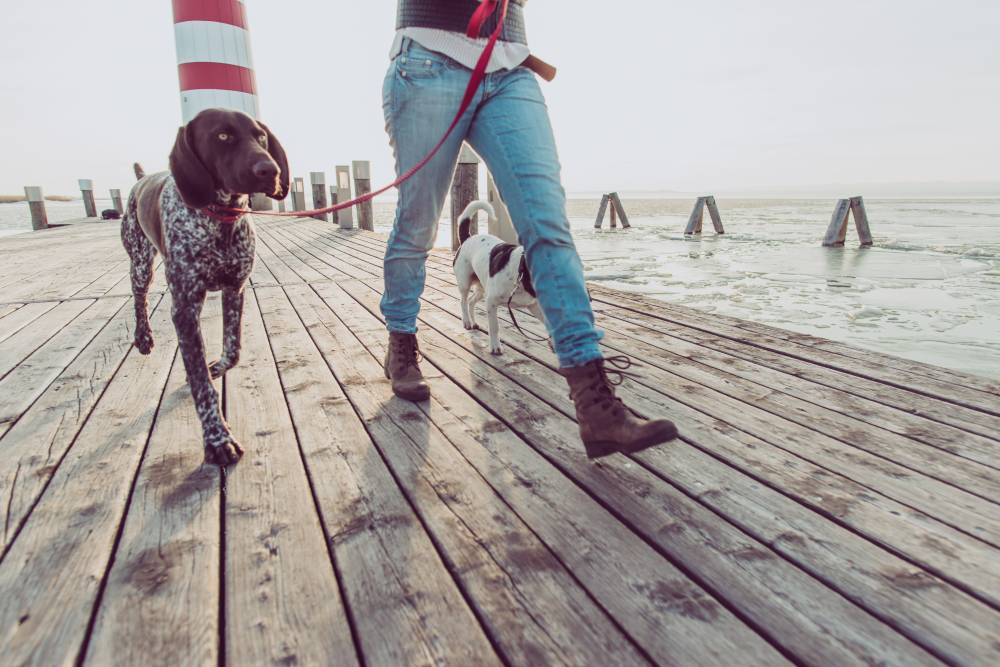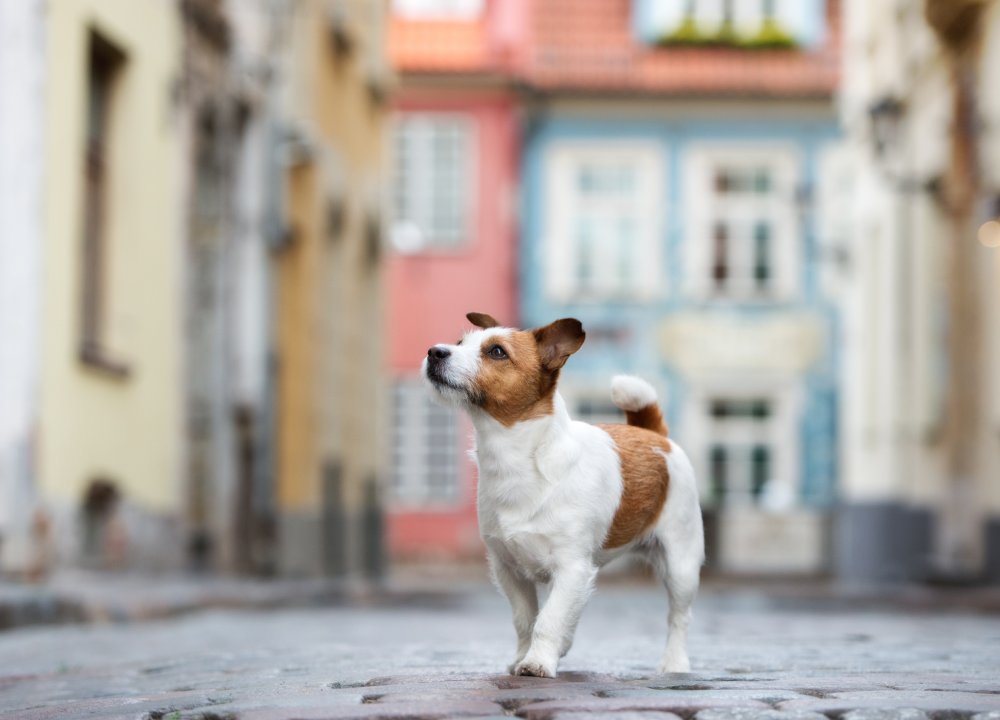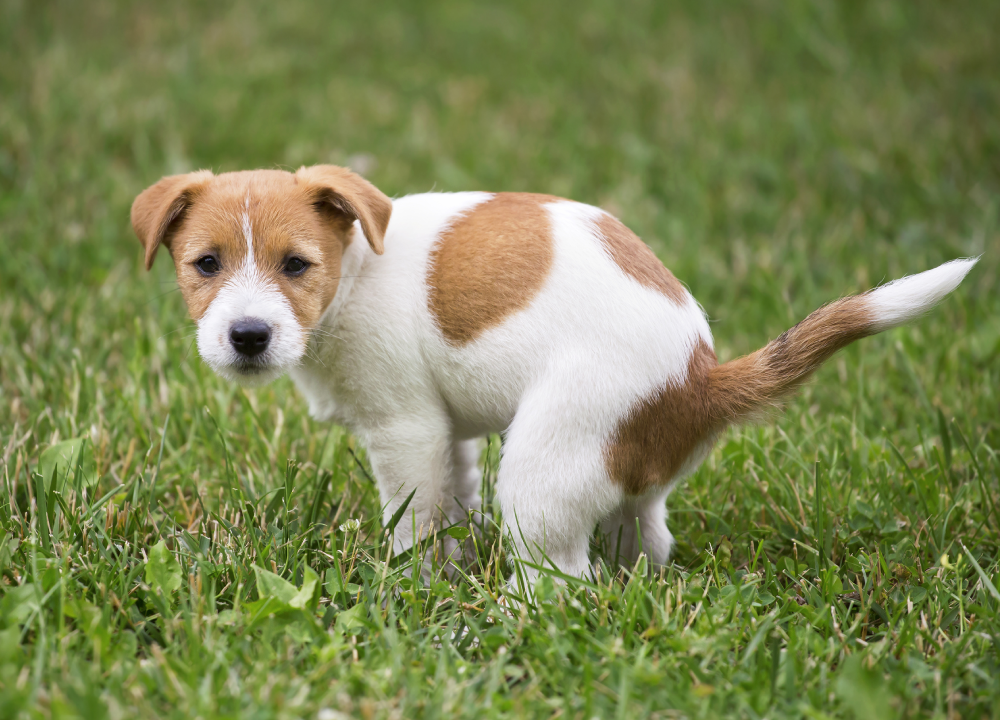10 Tips for First Time Dog Owners (And Mistakes to Avoid)
Amanda Guagliardo
Congratulations on your new dog! Dog ownership is special and exciting but at times it can be scary, especially if you've never owned a dog before. Here are some things you need to know to help you welcome your new pup.
How do I know if I should get a new dog?
 Photo: Adobe Stock/hedgehog94
Photo: Adobe Stock/hedgehog94
New dogs are a lot of responsibility, especially puppies. There will be potty breaks, feedings, playtime and some late nights. As a first-time dog owner, you should know how to handle these responsibilities. Do you have enough time for a dog? Are you home enough? Dogs will need a lot of attention and your life may alter as you bring a new pup home.
How do I establish a schedule for my dog?
 Photo: Adobe Stock/simona
Photo: Adobe Stock/simona
Once your new dog arrives home it'll be important to establish a schedule. Dogs thrive on routine and new puppies especially will need a daily schedule. Be sure your dog has many potty breaks, meal times, and play times throughout each day.
How do I discipline my dog without punishment?
Although dog ownership has its perks, there are some downsides as well. You will need to learn to punish your dog properly. You should be consistent, firm but never scold or hit your dog. If your puppy is rambunctious and won't listen, give him a timeout. Just like a toddler, a dog can learn from taking a break and going in timeout. Don't shout or scream but be assertive with your dog and let them know you lead the pack.
What do I do when my dog gets sick (or eats something they shouldn't)?
 Photo: Adobe Stock/Kanstantsinzzz
Photo: Adobe Stock/Kanstantsinzzz
Your dog may get sick and as a first-time dog owner, it's a good idea to know what to do when they're not feeling well. If your dog is throwing up, not eating or drinking, or acting very unusual you should call your vet immediately. Some breeds have different symptoms that are common to them, it may be helpful to join an online group or read chat rooms to help you understand the breed you have. Your new dog may have allergies or diarrhea, after consulting your vet you may find home remedies that help. Puppies often get into things they shouldn't and if your dog has eaten something he shouldn't and you may need to make him vomit, but you should contact your vet right away.
How do I make my home / backyard safe for a dog?
 Photo: Adobe Stock/Wasitt
Photo: Adobe Stock/Wasitt
Your dog's breed will depend on how much space they need and you should know how to make your home safe for your new dog. Ideally, a fenced yard is best for a dog. A bigger, more active breed will need space to run and play. If you cannot fence your yard, it's a good idea to keep your dog chained or on a leash. Make sure the inside of your home is safe for your dog also. Your dog will be curious about their new home and you'll want to put away anything that could be dangerous or harmful to them.
How do I choose the right food, treats, and supplements for my new dog?
 Photo: Adobe Stock/Seventyfour
Photo: Adobe Stock/Seventyfour
To ensure your dog's health, a new puppy should be given the same dog food they've had their whole life. This is the best way to avoid possible allergy attacks. If you switch your dog's food make sure you do so gradually and ask your vet's advice before doing this. You also want to make sure you're giving your dog the proper amount of food. Overfeeding and underfeeding could be crucial in a dog's health. If your dog was adopted he may need supplements to maintain his health, ask the shelter you got the dog from if they have a specific diet or have been taking any supplements.
How much should I budget for a new dog?
First time dog owners are often shocked by the costs of a dog. Your dog will need vaccines and checkups, plus food, dog toys, leashes, etc. Depending on the need for vaccines, preventive medications, and special treatments, that first visit will likely cost you anywhere from $50 to $300, so be prepared. Make sure that unexpected costs can fit into your budget. Some dogs have health problems and you may even need to consider pet insurance. Be sure you can afford a pup before you purchase one.
How can I make sure my dog behaves in public?
 Photo: Adobe Stock/Laszlo
Photo: Adobe Stock/Laszlo
You may need dog training before you take your dog out in public. Some people aren't comfortable with dogs and you want to be sure you're respectful of others when you bring your dog in public. A well-mannered, trained dog is necessary when introducing your dog to people. Make sure you always keep your dog on a leash and if you bring your dog to the dog park, be sure to keep an eye on him at all times.
How do I prevent separation anxiety in my dog?
 Photo: Adobe Stock/edojob
Photo: Adobe Stock/edojob
After you bring your dog home, he may need some time adjusting. Oftentimes dogs develop separation anxiety. Your dog may bark excessively or chew your house apart if you leave him. Be sure to only leave your new pup for a few hours at a time to start, until they are comfortable. Try crate training or lock your dog in a safe area when you leave. If you can't come home throughout the day, try getting a doggy sitter or dog walker.
How to travel with a dog?
 Photo: Adobe Stock/pongmoji
Photo: Adobe Stock/pongmoji
If you travel a lot, you should consider a travel plan before you buy a dog. If you have to leave your pet behind you'll want to make sure you have dog sitters or a way to bring your dog along with you. Some breeds may not be comfortable traveling on a plane or in a car for a long period of time so you may have to check out local boarding facilities. Or, there are plenty of online dog sitting sites, such as Rover."
Common mistakes to avoid when you first get a dog
Being a first-time dog owner can be stressful and it's very easy to make mistakes. If you're worried, try following these guidelines.
1. Buying vs adoption
There are pros to both buying and adopting a dog. It comes down to what the first-time dog owners prefer. Regardless, do what is right for you and your family.
Pros to Adopting:
 Photo: Adobe Stock/hedgehog94
Photo: Adobe Stock/hedgehog94
- It may be cheaper than buying
- You could be saving a life
- Your dog may come fully trained
- You won't be supporting puppy mills
Pros to Buying:
- You get to select the exact breed you want
- You can train your new dog exactly how you want
- You won't have to go through the adoption and evaluation process
- If you buy a puppy, you'll be their first-time partner
- A puppy purchased from a good, reputable breeder often comes with lifetime support, which can be very reassuring for the new owner
2. Inconsistent training
 Photo: Adobe Stock/alexsokolov
Photo: Adobe Stock/alexsokolov
Be consistent with your rules. Training a new dog takes time and repetition is important. Your new pup will thrive on consistency. Use treats to train and keep your pup on a schedule to avoid bad behavior. Take your dog to obedience school if possible or get a trainer to ensure they grow up to be a great adult dog.
3. Allowing your dog to eat human food
 Photo: Adobe Stock/pongmoji
Photo: Adobe Stock/pongmoji
Dogs have different digestive systems and therefore you should do your best to not feed them human food. Of course, the correct kinds of human food every now and again is ok. Foods like carrots, green beans, apples, and white rice can all be good treats for dogs. But you should do your best to avoid feeding your dog certain human food. Speak to your vet or do your research on what human foods dogs can eat and what foods are unsafe for dogs.
4. Not ensuring your dog's energy level matches yours
 Photo: Adobe Stock/Surachetsh
Photo: Adobe Stock/Surachetsh
This mistake is made more often than we know. First-time dog owners select a dog that doesn't fit their lifestyle and end up rehoming the dog. This is not okay. You want to make sure your dog's energy fits yours. If you're not looking to go on walks 2 times a day, then you want to make sure you get a dog that isn't highly active. If you love to hike and hit the trails, find a dog that can come along with you.
5. Letting them off-leash in public
 Photo: Adobe Stock/otsphoto
Photo: Adobe Stock/otsphoto
Although some breeds can be well trained and a lot of them love to run free, you should never take your dog off their leash in public. Dogs are unpredictable, no matter how well trained. They may see distractions (squirrel!) and run without ever acknowledging your commands to stay. Also, make sure your dog's leash/harness is correct for their breed. A loose harness could lead to your dog escaping.
6. Expecting all dogs to get along
 Photo: Adobe Stock/kathomenden
Photo: Adobe Stock/kathomenden
When you bring a new pet into your home you want to make sure your other pets will welcome them. Don't expect that your old dog will get along with your new puppy. It's a good idea to introduce your animals before bringing in a new dog.
7. Not picking up their poop
 Photo: Adobe Stock/Reddogs
Photo: Adobe Stock/Reddogs
Most dog owners know this, but be sure to pick up your dog's poop. Bring doggy bags along on your walks and clean up after your dog. It's common courtesy. And in fact, in some cities, you may even be fined if you don't remove your dog's waste.
8. Not registering the microchip
 Photo: Adobe Stock/Reimar
Photo: Adobe Stock/Reimar
Why register or microchip? Because if your dog gets loose or stolen you're more likely to get them home again. If your pet is found injured or is lost and needs medication, a dog license makes it more likely that the dog will get proper care right away.
9. Neglecting your dog's basic needs because you're busy
 Photo: Adobe Stock/Chalabala
Photo: Adobe Stock/Chalabala
New dog owners will need to understand their dog's basic needs and make sure to put them first. Dogs cannot be left alone for long periods of time, they must eat, they must go outside, they must play and interact. These basic needs should all come first. If the basic needs of a dog cannot come first in your life, you shouldn't purchase a new dog.
10. Overestimating your dog's resilience to heat / cold
 Photo: Adobe Stock/Firn
Photo: Adobe Stock/Firn
This one is important. Limit your dog's exercise on hot days, provide lots of shade and water, watch for signs of heatstroke (glazed eyes, a rapid heartbeat, difficulty breathing), do not walk your dog on hot pavement, and NEVER leave your dog inside a hot car. Keep in mind the colder months too. Generally, temperatures at or above 45°F will not require any special sweater or coat. When temperatures start to fall below 45°F, some cold-averse breeds will get uncomfortable and will need protection. Never leave your dog outside in the winter for too long and be sure their paws are protected from snow and ice.

 Photo:
Photo:  Photo:
Photo:  Photo:
Photo: 
